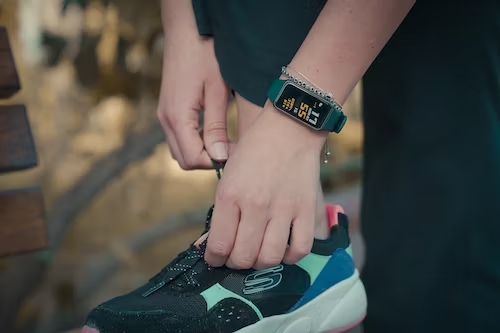
@ShahidNShah


Healthcare, a domain traditionally associated with direct patient care and medical expertise, is in the throes of a technological revolution. Central to this evolution is the Chief Information Officer (CIO), whose role, once constrained to managing IT infrastructure, has now burgeoned to encapsulate innovation and strategic leadership.
No longer relegated to overseeing IT infrastructures, the modern CIO is responsible for ushering in game-changing technologies—tools that refine care quality, pare down costs, and enhance patient outcomes. However, this expanding domain also brings formidable responsibilities: CIOs must adroitly manage the inherent risks of new technologies, ensuring patient safety and system efficiency.
In the modern healthcare landscape, CIOs must don the mantle of digital strategists. They’re tasked with discerning technological opportunities with the potential to redefine healthcare and orchestrating comprehensive strategies for their integration.
Now more than ever, CIOs are gatekeepers of stakeholder relationships. Their leadership extends to nurturing bonds with a spectrum of healthcare stakeholders—from clinicians and patients to insurers, ensuring that tech integrations are smooth and meet the needs of all involved.
Today’s CIOs face a complex array of challenges. They must navigate the relentless pace of technological advancements, a task made all the more daunting given the industry’s pressing need for cost efficiency, especially when these promising innovations often come with hefty price tags. Additionally, the fragmented nature of healthcare IT systems complicates data sharing, creating hurdles in an era increasingly favouring integrated care. Above all, with the proliferation of data-centric solutions in healthcare, the imperative to safeguard patient data’s privacy and security has never been more paramount.
In the wake of increasing cyber threats, CIOs are mandated to prioritize cybersecurity. They need to ensure that both existing systems and new integrations are protected against potential breaches, maintaining patient trust and system integrity.
Strategic collaborations with health tech startups, research bodies, and academic institutions can accelerate the adoption of innovations. CIOs are at the forefront of identifying and fostering these partnerships, ensuring that their organizations stay ahead of the curve.
Real-world instances vividly highlight the profound influence of CIO-driven technological integrations. For instance, the Mayo Clinic leverages AI to sift through patient data, unveiling patterns that inform groundbreaking cancer treatments. Simultaneously, the Cleveland Clinic employs VR as a training tool for surgeons, providing a risk-free platform to refine their techniques. Furthermore, Geisinger Health System’s utilization of predictive analytics emerges as a game-changer, pinpointing patients susceptible to chronic diseases and facilitating timely, preventive measures.
David Feinberg, a seasoned physician and healthcare executive, is currently the CIO of Google Health and is making waves with his innovative approaches to integrating technology in healthcare. With a rich background in healthcare IT, including his tenure as CEO of Geisinger Health System, Feinberg championed the creation of patient-centered electronic health record systems and tapped into data analytics to uplift care quality. His current endeavors at Google Health revolve around devising a mobile-accessible patient portal that simplifies medical record access, doctor-patient communication, and care management. Another notable project is a platform tailored for online doctor searches and appointment bookings, leveraging data analytics to ensure patients are paired with the most suitable medical professionals. Google Health is also pioneering tools powered by data analytics to aid patients in managing chronic conditions and identifying those at potential risk for specific diseases, thus enabling proactive healthcare intervention. Furthermore, Feinberg is actively nurturing collaborations between healthcare institutions and tech giants to expedite the infusion of technology in healthcare. His contributions at Google Health exemplify the larger shift towards technology-driven, patient-focused healthcare solutions.
As the nexus between healthcare and technology becomes more intertwined, the CIO’s role will continue to evolve. With a blend of technological acumen, strategic foresight, and leadership prowess, CIOs are uniquely positioned to steer healthcare organizations towards a promising, tech-driven future. Those who embrace this dynamic role will undeniably be at the vanguard of healthcare’s next chapter.
The healthcare sector stands at the intersection of science, technology, and human touch. As innovations continually reshape this realm, the need for robust, cutting-edge evaluation techniques becomes …
Connecting innovation decision makers to authoritative information, institutions, people and insights.
Medigy accurately delivers healthcare and technology information, news and insight from around the world.
Medigy surfaces the world's best crowdsourced health tech offerings with social interactions and peer reviews.
© 2025 Netspective Foundation, Inc. All Rights Reserved.
Built on Apr 29, 2025 at 12:52pm